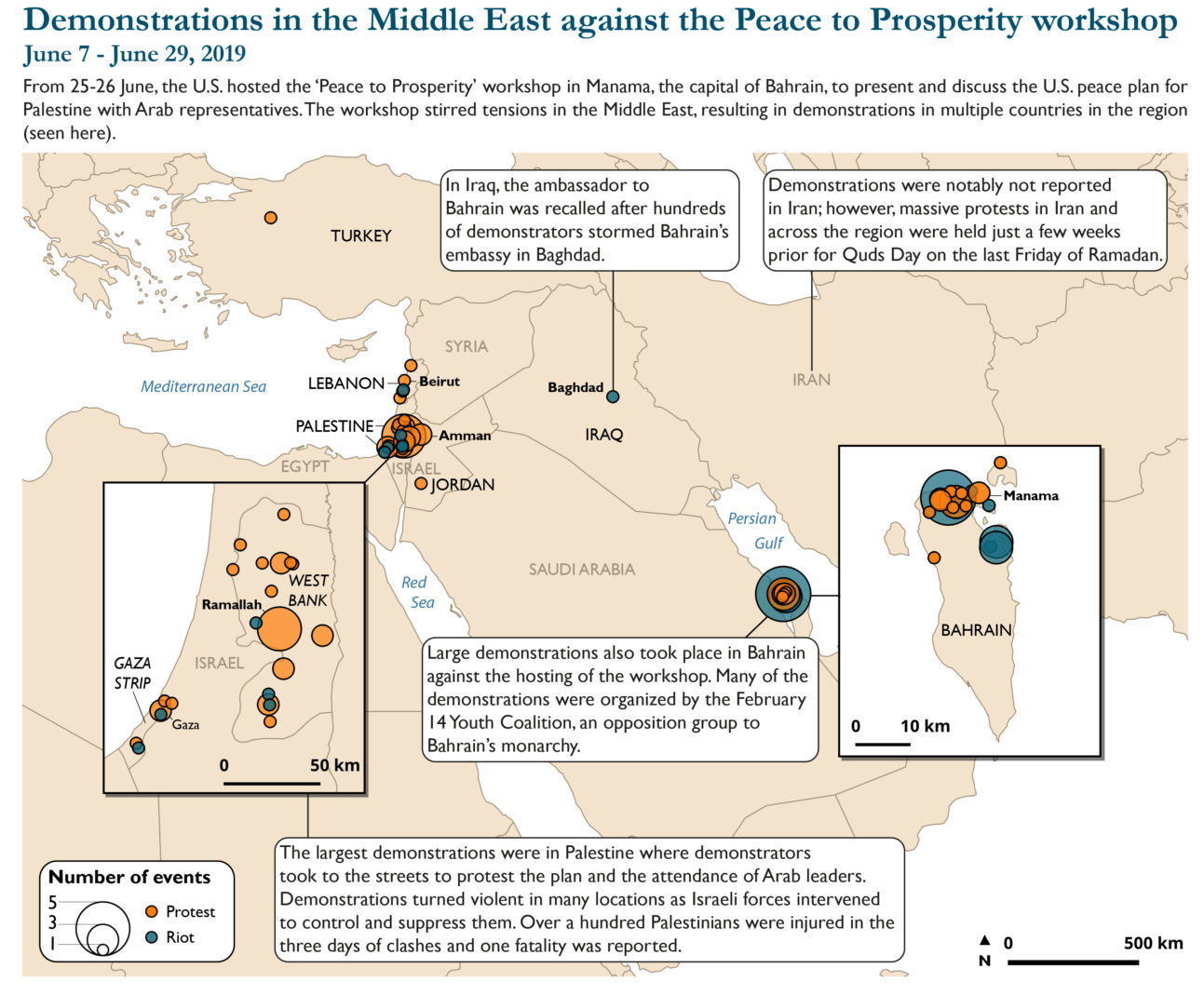The U.S. Palestine Peace program dubbed the ‘Deal of the Century’ has been one of the most highly anticipated elements of the Trump Administration’s foreign policy. The first part of the much-awaited plan was released on 22 June, a few days before the ‘Peace to Prosperity’ workshop in Manama was set to begin. The first part of the plan states that it aims to economically empower Palestinians in the West Bank and Gaza through $50 billion in investment. It immediately faced criticism for failing to address the root cause of Palestinian economic disenfranchisement, and did not mention the Israeli occupation of the Palestinian territories once (HRW, 24 June 2019). The workshop was attended by representatives from Gulf countries, Egypt, and Jordan. It was boycotted by Lebanon and Iraq in solidarity with Palestinian officials. The attendance at the workshop is a snapshot of current political allegiances in the Middle East with the U.S.-Saudi allies attending, and Iranian allies boycotting.
Jared Kushner, President Trump’s son-in-law and the organizer of the workshop, was quoted as calling Palestinian leadership “hysterical and stupid” for boycotting the workshop. However, prior to the release of the plan, American-Palestinian diplomatic relations have collapsed since the election of President Trump. In September 2018, the Trump administration ordered the closure of the PLO offices in Washington, DC, “effectively shuttering the Palestinian diplomatic mission to the U.S.” (NPR, 10 Sept 2018). Matters were made worse by the controversial move of the American Embassy from Tel Aviv to Jerusalem. The day of the embassy’s opening 57 Palestinians were killed by Israeli forces in Gaza during demonstrations. Yet, the Trump administration still appears to consider itself well poised to broker Israeli-Palestinian relations.






